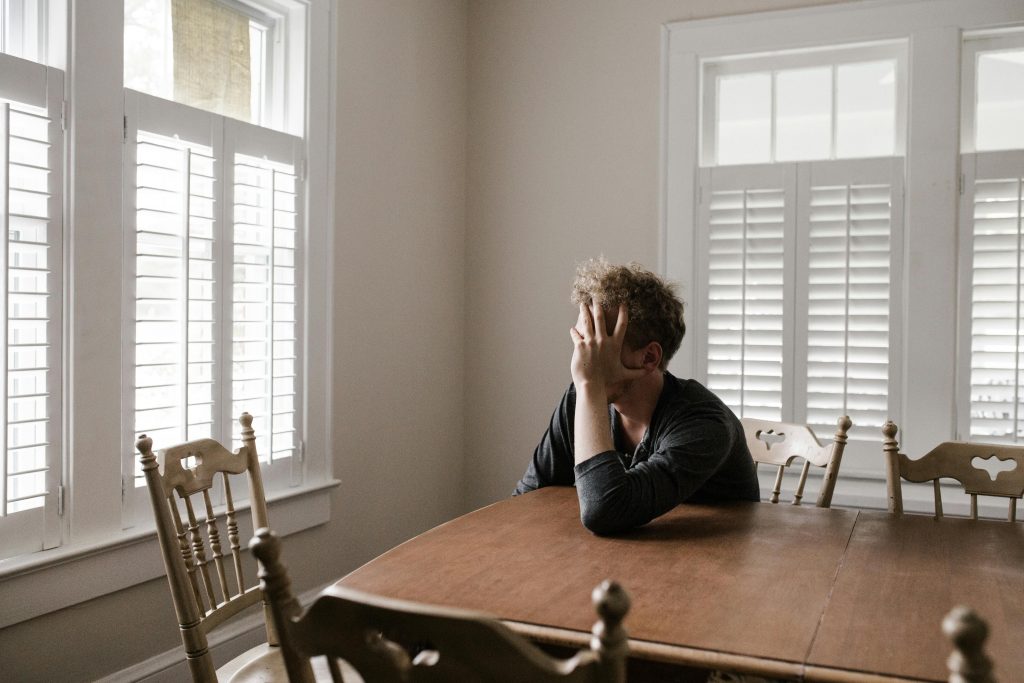Discovering a partner’s infidelity can trigger relentless rumination, suspicion, and worry — expected reactions to traumatic betrayal. You can ask: How to stop overthinking after being cheated on? This is a fair question. While overthinking is a typical response as the mind grapples to make sense of chaos, dwelling on anger, confusion, and loss stalls healing.
To break free of negative thought patterns, practical steps like mindfulness, self-care, honest communication, and seeking closure can help stop fixating on the unchangeable past.
Below, we will explore constructive techniques to overcome obsessive overanalysis, manage difficult emotions, and ultimately renew focus on your well-being.
Why Do I Always Get Cheated On in Relationships?
First, we need to understand why you should experience coping with cheating — again and again.
Unfortunately, some individuals experience patterns of serial cheating by partners. According to one study, those reporting four or more cheating partners were less extroverted and agreeable compared to those experiencing isolated incidents.

Other research found chronic infidelity victims commonly exhibit low self-esteem after being cheated on the first time, anxious attachment styles, and excessive people-pleasing traits that offenders exploit. Emotional dependency also impedes leaving at earlier red flags. However, repeat betrayal typically stems from the cheater’s persistent conduct, not a deficiency.
Personality disorders like narcissism or sociopathy in partners frequently predict recurrent cheating and deception across relationships. Ultimately, seeking self-affirming connections, attending to red flags sooner, and gaining support through counseling help overcome unhealthy dynamics that enable chronic cheating scenarios.
But you can’t give up; you have to keep going. To do this, you must understand how to rebuild your life after being betrayed.
Can You Get Over Being Cheated On?
You are here because you can’t get over being cheated on, right? But the answer is: Yes, you can get over and move on.
Though intensely painful, it is possible to heal and “get over” being cheated on in many cases. According to one study, nearly 60% of couples stay together after infidelity is discovered and transparency occurs. Of those, 70% reported fully recovering and trusting their partner again with time and effort.

However, rebuilding broken trust requires the participation of both parties through counseling, honest communication, and displaying changed behaviors. The betrayer must demonstrate accountability, empathy, and commitment to the victim’s healing. And be sure, the pain of being cheated on — it is ok.
Meanwhile, the betrayed individual can foster forgiveness by reframing thoughts about the trauma, finding closure through discussion, and committing to self-care and introspection.
While eternally altering the relationship’s dynamic, infidelity does not have to be a permanent end if both individuals are willing to confront emotional wounds and forge a new path forward courageously.
How to Cope With Being Cheated On?
So, how to get over being cheated on? Discovering infidelity can be emotionally devastating. That is true. But you can try several very different but — at the same time — handy steps for dealing with being cheated on:
- Permit yourself to feel the total pain, anger, grief, and confusion.
- Recognize your self-worth has not diminished, though trust in another has.
- Confide in compassionate friends or a counselor to avoid isolation.
- Channel emotions into creative outlets like writing, music, or art.
- Make time for self-care through exercise, nutrition, and therapeutic activities.
- Set boundaries and communicate your needs clearly to the partner.
- Take gradual steps to regain independence and focus on personal growth.
While the path forward is arduous, you will gather strength through self-knowledge to construct a hopeful new normal.

What to Do When You Get Cheated On?
First, prioritize self-care and emotional processing with support systems in the raw aftermath of betrayal. And yes, this is not only one piece of advice. Catch some more!
- Resist self-blame; the choice to cheat was the failure of your partner alone.
- Consider options for recourse calmly, not from immediate anger.
- If safe, communicate feelings to your partner and decide if the relationship warrants potential rebuilding or ending.
- Seek counseling to gain insight into your own unmet needs.
- Surround yourself with nurturing friendships. It can help you when coping with anxiety about cheating.
- Allow time for existential questions about life priorities.
- Create closure by journaling, expressing creativity, or ceremony.
- While painful, reflect on lessons that ultimately deepen wisdom.
How to Overcome Cheating Trauma?
Healing cheating trauma requires relinquishing the painful past through gaining self-knowledge and closure in the present. First, let’s understand: Yes, now you are experiencing an awful time. But getting over being cheated on is possible! And not so long.
- Process emotions through counseling, support groups, or opening up to trusted confidantes.
- Avoid destructive coping mechanisms and be patient on bad days.
- Reframe problematic thought patterns into affirmations of self-worth.
- Set self-care goals like regular exercise, nourishing nutrition, and productive hobbies.
- Rediscover your passions and interests.
- Communicate boundaries to the partner and take time apart if needed.
- Focus inward on your journey, not obsessively analyzing the others’.
- Have faith that you will integrate this hardship and emerge stronger in time.

How to Move On After Being Cheated On?
First, allow yourself to fully process the grief and pain through avenues like counseling, journaling, or trusted confidantes. Avoid suppressing difficult emotions or diving into harmful coping mechanisms.
Next, reframe negative self-talk into self-affirmations to rebuild self-confidence. Commit to consistent self-care through fitness, socializing, hobbies, and other uplifting activities.
Don’t be afraid to take gradual steps to regain independence and establish your needs clearly with your partner. Determine if professional help or temporary separation is required to heal trust — set goals to rediscover personal passions outside the relationship.
While intensely painful, reflect on any lessons or growth opportunities the trauma revealed. It can help you move on after being cheated on! Focus energy inward on your healing journey. With time, perspective, and concerted self-work, you can integrate the betrayal experience and emerge wiser and more resilient.

Dating After Being Cheated On
Dating after being cheated on can be challenging, but it’s essential to take your time and heal. First, give yourself the space to feel and understand your emotions. Don’t rush into a new relationship right away. Remember, not everyone is the same, and not all relationships end in betrayal.
Be open and honest with your new partner about your feelings and fears. Communication is key! Learn from the past, but don’t let it control your future. Trust your instincts, and if something doesn’t feel right, talk about it. Building trust takes time, so be patient and give love another chance when you’re ready. You deserve happiness and a healthy relationship!
Conclusion
Healing from infidelity requires letting go of endless overanalysis about the irreversible past. Implementing intentional mental health strategies allows us to regain emotional control, move forward in growth, and potentially rebuild relationships on firmer foundations of trust. Committing to mindfulness, communication, self-care, and forgiveness, we can write a new chapter that leaves obsessive overthinking behind. Don’t worry: recovering from being cheated on is not a long process. It is real. And this is something you have to do. Now.

FAQ
Does the Pain of Being Cheated On Ever Go Away?
The pain of being cheated on can diminish, but the healing process varies for each individual. With self-reflection, support, and time, many people find ways to cope and move forward.
How Can I Be Happy After Being Cheated On?
Rebuilding happiness after being cheated on involves self-care, seeking support from friends or a therapist, setting boundaries, and focusing on personal growth. Cultivating new interests and positive relationships can contribute to finding joy again.
Why Do I Keep Getting Cheated On?
Understanding why someone experiences repeated cheating can be complex and varies from person to person. Possible factors may include issues within the relationship, communication problems, personal insecurities, or patterns of attracting individuals with commitment issues. Seeking professional guidance, such as couples therapy or personal counseling, can help explore underlying issues and develop strategies for healthier relationships.

